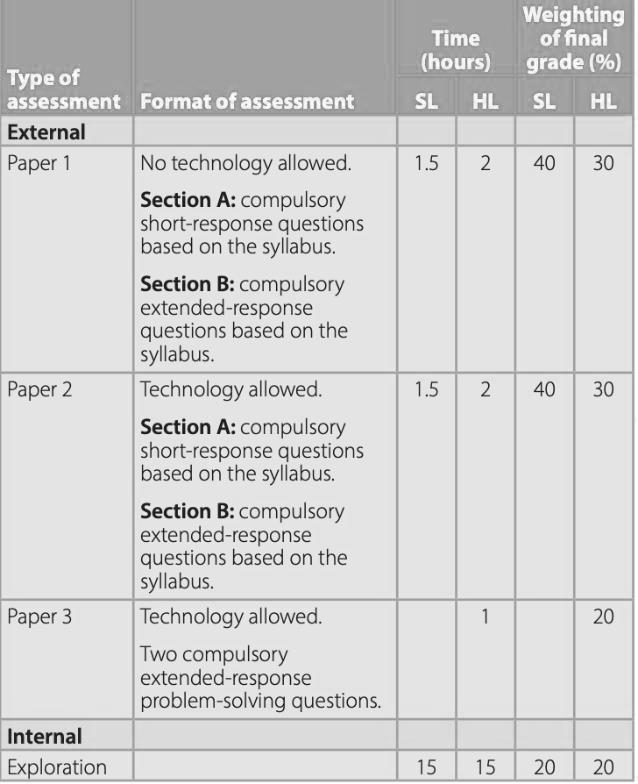
1 minute read
Mathematics: Analysis and Approaches (HL and SL
Group 5: Mathematics
Mathematics: Analysis and Approaches (HL and SL)
The Mathematics: Analysis and Approaches course recognises the need for analytical expertise in a world where innovation is increasingly dependent on a deep understanding of mathematics. The focus is on developing important mathematical concepts in a comprehensible, coherent and rigorous way, achieved by a carefully balanced approach. Students are encouraged to apply their mathematical knowledge to solve abstract problems as well as those set in a variety of meaningful contexts. Mathematics: Analysis and Approaches has a strong emphasis on the ability to construct, communicate and justify correct mathematical arguments. Students should expect to develop insight into mathematical form and structure, and should be intellectually equipped to appreciate the links between concepts in different topic areas. Students are also encouraged to develop the skills needed to continue their mathematical growth in other learning environments. The internally assessed exploration allows students to develop independence in mathematical learning. Throughout the course students are encouraged to take a considered approach to various mathematical activities and to explore different mathematical ideas. The main objectives in this course are for students to: • develop a curiosity and enjoyment of math, and appreciate its elegance and power; • develop an understanding of the concepts, principles and nature of mathematics; • communicate mathematics clearly, concisely and confidently in a variety of contexts; • develop logical and creative thinking, and patience and persistence in problem solving; • employ and refine their powers of abstraction and generalisation; • apply and transfer skills to alternative situations; • appreciate the moral, social and ethical questions arising from mathematics; • appreciate the universality of mathematics and its multicultural, international and historical perspectives; • appreciate the contribution of mathematics to other disciplines; • develop the ability to reflect critically upon their own work and the work of others; and, • independently and collaboratively extend their understanding of mathematics.










